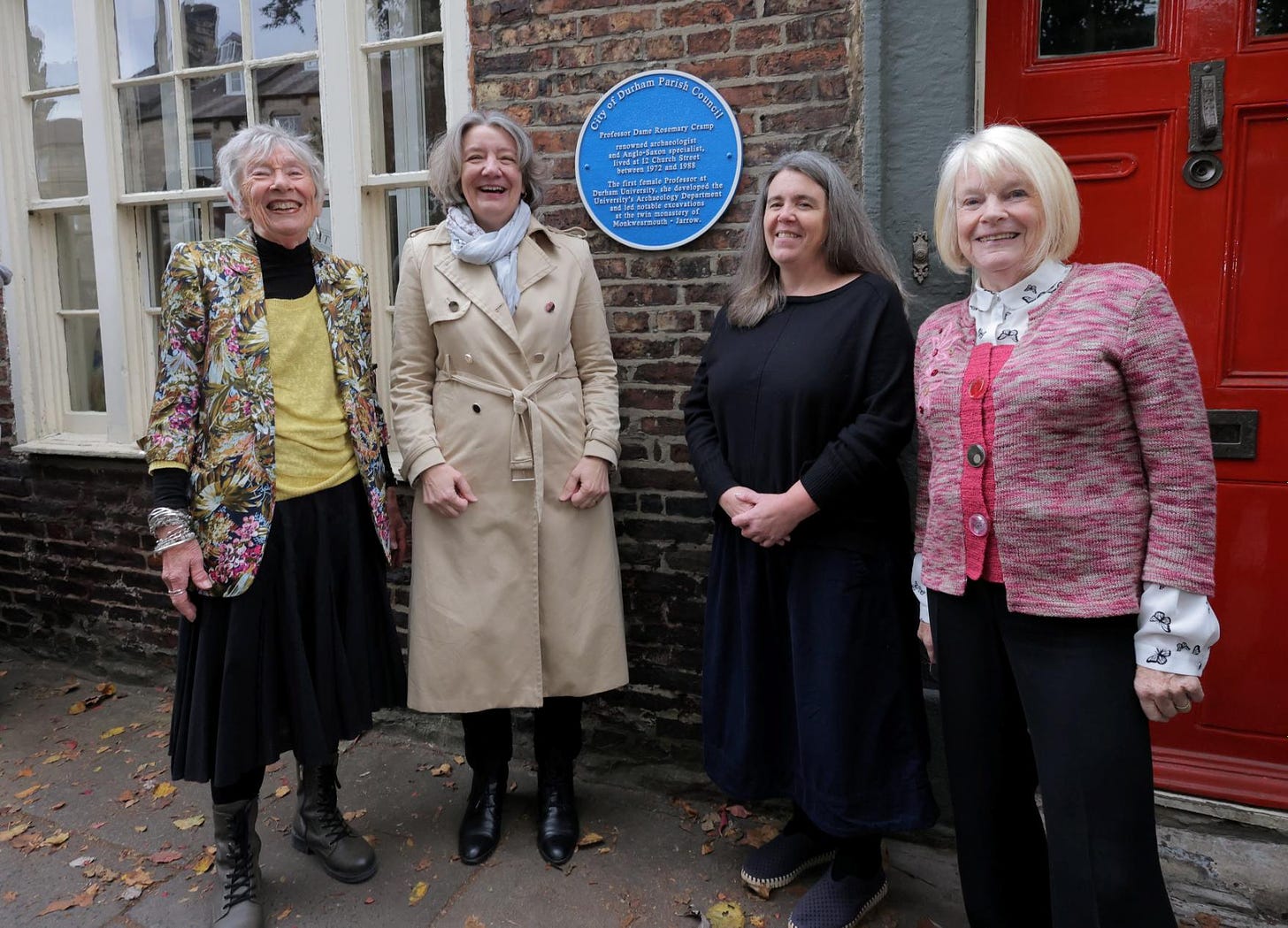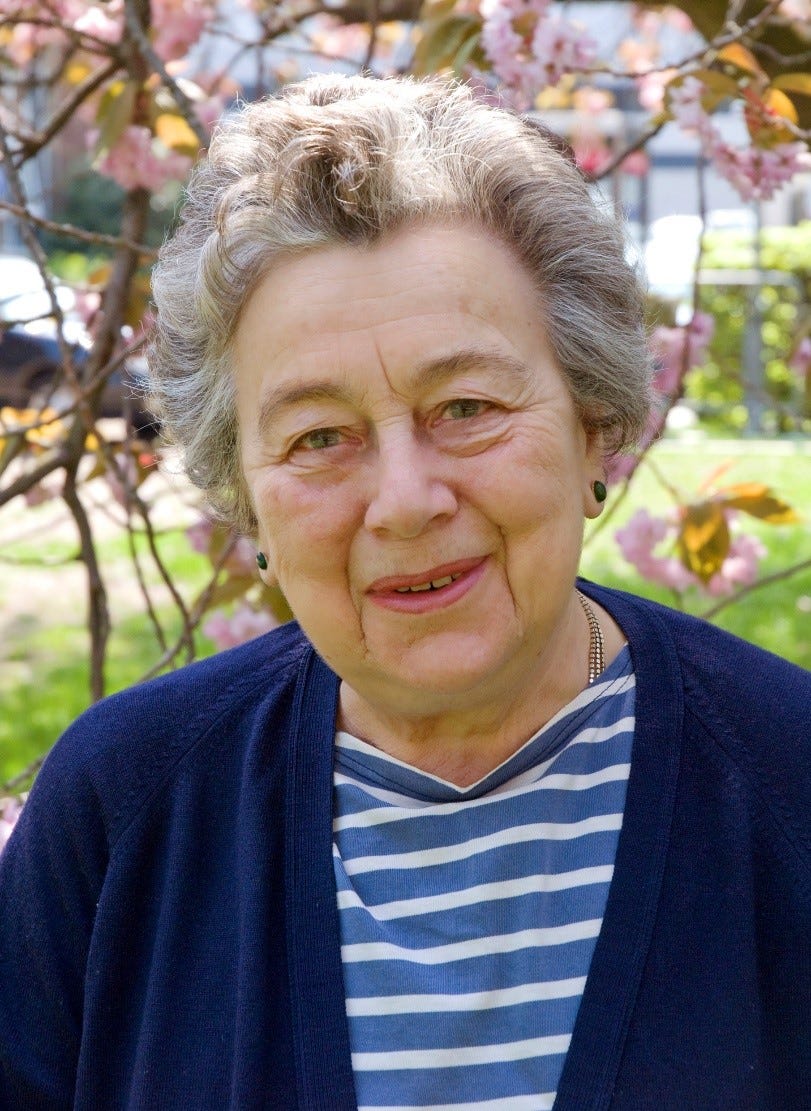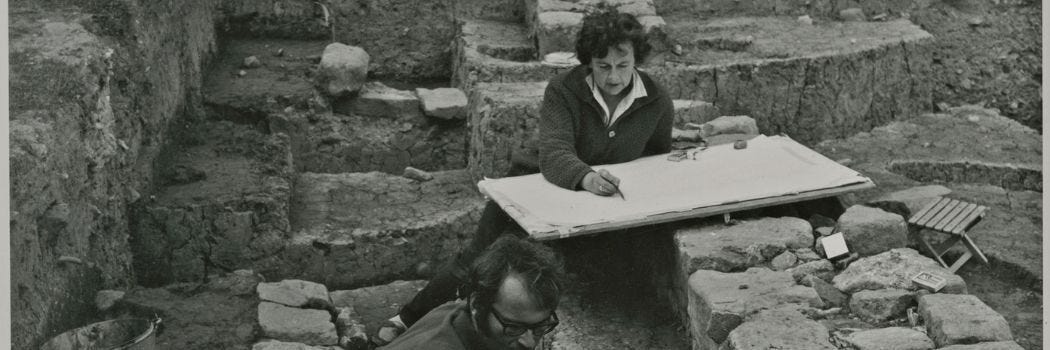Blue plaque for pioneering Durham professor
A North East archaeologist of international renown has been celebrated in the city where she spent much of her stellar career. Tony Henderson reports.

A leading archaeologist who championed the history of the North East has been honoured with a blue plaque at her former home.
The unveiling ceremony celebrated the late Professor Dame Rosemary Cramp at her Church Street home in Durham, where she lived during her long career at the city’s university. Prof Cramp died last year, aged 93.
In 1971 she became the first female Professor of Durham University and from 1963 led a series of excavations across 29 years at the twin monastery sites of St Peter’s Church at Sunderland and St Paul’s Church in Jarrow, which was the home of the Venerable Bede.
The City of Durham Parish Council has organised the plaque installation.
It was unveiled by Durham University’s Vice Chancellor Professor Karen O’Brien – herself the first female Vice-Chancellor of Durham University - alongside close friend and colleague of Dame Rosemary’s, archaeologist Professor Sarah Semple, who is currently carrying out excavations at the Ad Gefrin Northumbria palace site near Wooler.
Chair of the parish council environment committee, Coun. Carole Lattin, said: “Professor Cramp helped to develop the university’s archaeology department to what it is today and, in so doing, paved the way for future female academics. It is only right that we honour this contribution and I hope that this blue plaque acts as a source of inspiration to all our students who travel this route each day to their place of study.”
Professor Sarah Semple said: “Professor Cramp was an outstanding trailblazer in archaeology and ahead of her time. She was one of the founders of the discipline of medieval archaeology, led some of the very first field excavations of early Christian monastic sites, and was the leading voice on pre-Conquest sculpture in Britain.
“Rosemary developed the Department of Archaeology at Durham as a world-leading centre for archaeology and archaeological science and remained deeply committed throughout her career to involving and engaging the communities of Durham and the northeast region with local heritage.”
Professor O’Brien said: “Dame Rosemary was a pioneering female researcher and an extremely accomplished archaeologist, who was held in very high regard by her students and peers throughout the world.
“Alongside Eric Birley, she was instrumental in founding our Department of Archaeology, which is now one of the best in the world.
“It is fitting that her many achievements are being commemorated with a blue plaque in the city that she loved and was her home for so many years.”
Born into a farming family, Prof Cramp joined Durham University in 1955, and was instrumental in the founding of the Department of Archaeology the following year with Hadrian’s Wall scholar Eric Birley.
An expert in Anglo-Saxon history, she served as head of department in archaeology at Durham University for 19 years and was twice recognised in the honours lists for her services to scholarship, being appointed a Commander of the Order of the British Empire in 1987 and then Dame Commander of the Order of the British Empire in 2011.
Read more: Colour, culture and community at Cambois
She also led a project which over more than 40 years has catalogued and visually recorded every fragment of early medieval stone sculpture across England.
Later this year, the parish council also intends to unveil a blue plaque dedicated to St. Mary’s College – of which Professor Cramp was a part – as the college celebrates its 125th anniversary.
Earlier this year a blue plaque was installed at Jarrow Hall - Anglo-Saxon Farm and Bede Museum (formerly Bede's World).
Prof Cramp led the development of a museum that created the site of the Bede Museum and Anglo-Saxon farm, which is now known as Jarrow Hall - Anglo-Saxon Farm and Bede Museum (formerly Bede's World).
The plaque was unveiled by the Mayor of South Tyneside, Coun Fay Cunningham and was attended by the Friends of the World of Bede and Durham University.
"Dame Rosemary was such a pioneer. Her heart was at St Paul's Church and monastery site. She was a real inspiration to many and brought the world of Bede and Anglo-Saxon England not just to Jarrow and South Tyneside but to the world,” said Coun Cunningham.
The plaque was funded by Groundwork South and North Tyneside and Jarrow Hall.
The Friends of the World of Bede have organised an exhibition, titled Groundbreaker, at Jarrow which runs until November 17 and tells the story of Prof Cramp’s life and career.
Andrew Watts, chief executive of Groundwork South and North Tyneside, said: "Groundbreaker celebrates the trailblazing work of Dame Rosemary Cramp. It is a fitting tribute to her work and dedication that we were also able to unveil the plaque and 2024 marks 50 years of her first exhibition at Jarrow Hall.“
Friends chairman Eric Cambridge said: "We are delighted to celebrate both the life and achievements of Dame Rosemary Cramp and the golden jubilee of the museum she founded in 1974.
"Dame Rosemary was a famously charismatic teacher and an eloquent and inspiring lecturer who had a profound impact on the region, well beyond the university world. She saw the Bede Museum as a way of explaining the results of her digs to a wider public and of reconstructing what Northumbria might have looked like in Bede's day."






